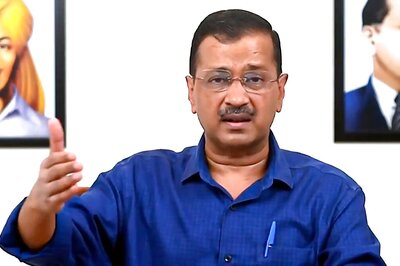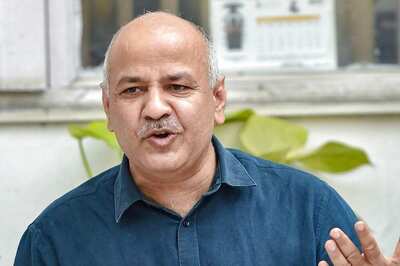
views
New Delhi: Pakistan Prime Minister Imran Khan made significant changes to his cabinet on Thursday amid a growing economic crisis in his country. The first announcement was made by Finance Minister Asad Umar, who said on Twitter that he was resigning as he had been asked to handle another ministry which he refused. Umar, however, added that Khan was still the best hope for Pakistan.
Abdul Hafeez Sheikh has now been appointed as adviser on finance. Sheikh, a former professor at Harvard University, has served in key positions with the World Bank and was finance minister during the provisional government in Sindh for two years starting 2000.
Interestingly, Khan has also appointed Brigadier Ijaz Shah as interior minister, a portfolio that was earlier held by Khan himself. As a then trusted aide of former President Pervez Musharraf, Shah’s accession to the post is bound to create a stir. Shah was also former IB chief for four years starting 2004 and his tenure was marked by accusations of him using the Bureau for political reasons. Earlier this month, PPP leader Palwasha Khan had reportedly said that Benazir Bhutto had mentioned Shah in a letter, naming him as someone who should be investigated if she gets killed.
Mounting Pressure From Party Amid Economic Crisis
Khan took charge last August amid growing concerns regarding Pakistan economy’s condition. Those in the know-how said Khan was feeling the pressure since there was no relief when it came to inflation and in the last couple of months, there had been no significant direction in policy.
“Umar was of the view that the country would have to deal with the problem of inflation for the next year or so and the government would have to take tough decisions. Khan trusted him with his work but there was too much pressure from within the party. Nobody wanted to wait for a year and then get questioned on why the government was not working towards curbing inflation. Khan still has a decent rating when it comes to popularity and being a promising PM but he’s also feeling the pressure,” sources said. Umar’s resignation also comes days after he met with IMF officials over a bailout package. Pakistan’s consumer price inflation hit 8.21% last month, the highest-ever since July 2014. Amid rising inflation, fuel prices have been hiked to record Rs 98.89 per litre for petrol and Rs 117.43 per litre for diesel.
Khan has also been facing pressure from within his party and was on the edge when it came to keeping everyone happy. Petroleum minister Ghulam Sarwar Khan threatened to quit the party if he was not given a cabinet position, News18 has learnt. The reshuffle kept him on board as the federal minister for aviation. Khan has also been facing the heat when it comes to the tax amnesty scheme currently being debated upon by the cabinet.
The scheme, which gives the option to people to legitimise offshore and onshore undeclared assets at a rate of 15%. Khan has come under fire for the scheme, something that he staunchly opposed to during the previous PML(N) government. This is not the first time that Pakistan is deliberating an amnesty scheme and Khan had, during the last government, said that if he came to power, he would never bring forth such an act and in fact, would start cases against those who have sought amnesty.




















Comments
0 comment